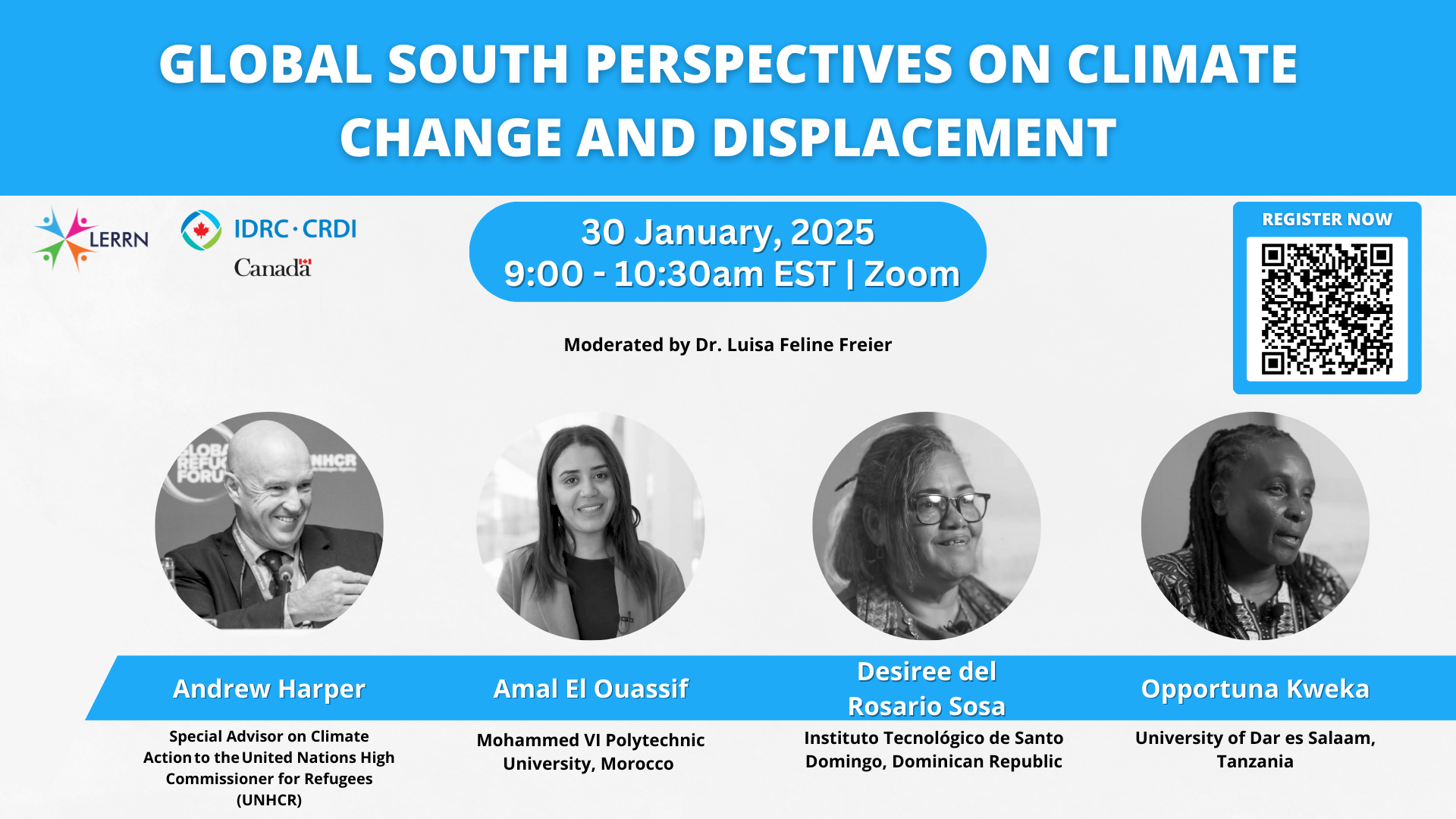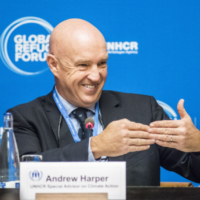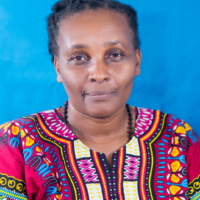Past Event! Note: this event has already taken place.
IDRC-LERRN Webinar: Global South Perspectives on Climate Change and Displacement
January 30, 2025 at 9:00 AM to 10:30 AM
| Location: | Zoom (Registration required) |
| Cost: | Free |
| Key Contact: | LERRN |
| Contact Email: | lerrn@carleton.ca |
The second IDRC-LERRN webinar in the webinar series reflects on the impact of the UN Climate Change Conference (COP29), convened in Baku in November 2024, in addressing the impact of climate change on the dynamics of forced displacement. In addition to focusing on supporting Global South to protect their people and economies against climate disasters and sharing the benefits of the clean energy boom, an objective of COP29 was to affirm the benefits of inclusive approaches that ensure the meaningful participation of highly vulnerable people from the climate frontlines. Given the limited progress witnessed at COP29, the webinar asks if and how new forms of localized knowledge on the relationship between climate change and displacement can support innovative thinking on better responses. In response, the webinar will revisit the elements of the Call to Action on Climate Change and Forced Displacement, issued at the 2023 Global Refugee Forum in Geneva by the Network of IDRC Research Chairs on Forced Displacement. The statement highlighted the deeply interconnected and interdependent relationship between climate change and forced displacement. Building on the existing Global South agreements, tools, fora and knowledge, the Chairs urged governments, organizations and international community to:
- Encourage the comprehensive management of environmental displacement policies including the governance of natural resources, disaster response, migration and forced displacement.
- Integrate local perspectives (refugees, host communities, migrants, displaced and stateless persons) at every level and stage of national adaptation and mitigation policymaking;
- Centre decolonial and indigenous knowledge and practices in climate displacement and environmental policy (including natural resource and land use), and place indigenous expertise at the forefront of climate solutions.
- Integrate considerations of race, gender, and diverse identity intersections with climate change and displacement; and
- Capitalize on regional integration mechanisms to encourage regional solutions; Foster a positive narrative around climate displaced persons and host communities.
Can these proposed actions influence global discussions on the relationship between climate change and displacement? Drawing on the experience of scholars based at universities in countries experiencing mass displacement, the webinar will ask: how can localized knowledge and thought leadership from the Global South contribute to more effective responses?
The webinar will showcase the results of research from different regional contexts, including with nomadic pastoralists in Tanzania; the gender impact of climate change on women migrant workers in the region of Souss massa in Morocco; and xenophobia, racism and human rights consequences of climate change in the Dominican Republic. The webinar will consider what substantive value of localized knowledge from the Global South can offer in considering localized approaches, especially given the changing political scenario in the Global North which challenges fund allocations and commitments in the coming years. The aim of the session is to bring in fresh, evidence-based research knowledge and policy perspectives by centering the needs, demands, voices and values of displaced persons and their communities in a climate of cooperation and understanding between all stakeholders, they seek a paradigmatic shift in global policy discourse and practice.







